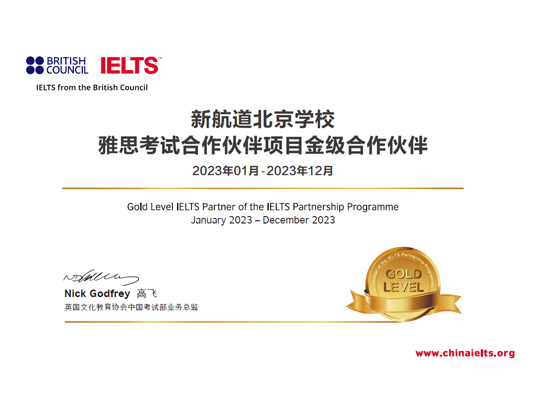当前位置:首页 > 雅思频道 > 雅思写作 > 8月1日雅思大作文真题参考范文 | 富裕应该给贫穷经济援助之外的其他援助吗?
发布时间:2020-08-06 关键词:
摘要: 2020年8月1日雅思大作文题目:富裕应该给贫穷经济援助之外的其他援助吗
2020年8月1日雅思大作文题目:富裕应该给贫穷经济援助之外的其他援助吗?
Rich countries often give financial aid to poor countries, but it does not solve the poverty. So rich countries should give other types of help to the poor countries rather than the financial aid. To what extent do you agree or disagree?
解析&审题
题材:政府
题型:手段目的型
关键词:countries + financial aid + other types of help
需要讨论的观点:富裕应该给贫穷经济援助之外的帮助吗?
建议思路:双边讨论+自己的观点
复现情况:疑似2013年10月10日真题

关于 “aid”(援助)的雅思写作真题:
1. Some people think giving aid to poorer countries have more negative effects than positive effects. To what extent do you agree or disagree?(2013/10/10)援助贫穷的坏处大于好处?
2. Some people believe countries have moral obligation to help each other, while others worry about aid money does not reach the poor people. (2016/5/21)国与国相互帮助是一种道德义务,但有人担心援助到不了穷人手中。
3. Some people believe famous people's support towards international aid organizations draws the attention to the problem, while others think celebrities make the problem less important. (2019/4/13)国际援助组织是否应该让名人参加其中?
4. Some people argue that the government should not pay money for international aid when there are some disadvantaged people at home (homeless or unemployed). To what extent do you agree or disagree? (2020/7/26)本国还有穷人时,是否应该资助其他?
7月26日刚刚考到一个国际援助问题,即“当国内还有穷人时,政府是否应该经济援助其他?”(点击查看:2020年7月26日雅思真题解析及范文),8月1日又出现同类问题。这次问题是:富裕是否应该给贫穷其他援助,而不是经济援助?
仔细审题,我们会发现本题实际上是一个传统的“手段-目的型”题目:为了解决贫穷问题,富裕应该给贫穷提供经济援助,还是其他类型的援助?本题可遵循如下思路:
1. 承认经济援助可以在某种程度上解决贫穷问题;
2. 经济援助作为一种手段的局限和问题所在;
3. 提出其他解决贫困问题的办法,比如帮助贫穷教育水平和科技水平;
4. 结论:应该提供其他类型援助,只有必要时才提供经济援助。
7分范文
Rich countries like the United States and the Great Britain often give money to some poorest countries in Africa as a kind of financial relief. Many people hold that this is not the best way to solve the poverty problem. I strongly support this idea and think rich countries should deliver other types of aid (intellectual and technological, for instance) so as to eliminate the poverty in poor countries.
For those living in extreme poverty, money can indeed save their lives by giving them enough food and clothes. However, it has been found that money alone cannot essentially solve the poverty and those countries dependent on foreign financial aid have remained poor no matter how much money they have received. This is probably because money can only relieve the poor countries of their present problems, but cannot solve their poverty permanently. Once the money is used up, they will return to poverty.
To eradicate poverty fundamentally, therefore, rich countries should give other types of help. It would be better, for instance, that they send educationalists to the poor countries and help raise their overall educational level, for only an educated country can be really rich. Meanwhile, as science and technology is key to improving a country’s economic strength, rich countries can help poor ones by making them technologically more advanced. This is exactly what China is doing in many African countries. Instead of just giving money, China helps these countries with their education, technology, and infrastructure, and as a result, they are becoming more and more wealthy.
To conclude, though we cannot say money is totally of no use to address poverty, it is not effective, especially compared to other types of aid. My suggestion, then, is that rich countries provide intellectual and technological aid to poor countries and offer financial aid only when it is extremely necessary.
老师笔记
01、Rich countries like the United States and the Great Britain often give money to some poorest countries in Africa as a kind of financial relief. Many people hold that this is not the best way to solve the poverty problem. I strongly support this idea and think rich countries should deliver other types of aid (intellectual and technological, for instance) so as to eliminate the poverty in poor countries.
像美国和英国这样的富裕经常捐钱给非洲一些最贫穷的,作为一种经济救援。许多人认为这不是解决贫困问题的办法。我支持这一想法,并认为富国应该提供其他类型的援助(例如智力和技术援助),以消除贫穷的贫困。
解析
(1) 本段先提出话题,然后给出题目观点,最后提出自己的观点。这是典型的雅思作文开头段。在提出话题时,将“富裕”具体化为“美国和英国”,将“贫穷”具体化为“非洲某些”。
(2) Financial relief 经济援助
(3) Eliminate poverty 消灭贫困(“消灭贫困”,有以下一些替换表达:solve poverty; remove poverty; eliminate poverty; eradicate poverty; address poverty)
02、For those living in extreme poverty, money can indeed save their lives by giving them enough food and clothes. However, it has been found that moneyalone cannot essentially solve the poverty and those countries dependent on foreign financial aid have remained poor no matter how much money they have received. This is probably because money can only relieve the poor countries of their present problems, but cannot solve their povertypermanently. Once the money is used up, they will return to poverty.
对于那些生活在极端贫困中的人来说,金钱确实可以给他们足够的食物和衣服来拯救他们的生命。然而,人们发现,单靠金钱无法根本解决贫困,那些依赖外国经济援助的无论收到多少钱,都仍然很穷。这可能是因为钱只能缓解穷国目前的问题,但不能解决其贫困。一旦钱用完了,它们就会重新陷入贫困。
解析
(1) 本段先简要说明经济救援的用处,然后马上转折过来,论述只提供经济救援无助于从根本上解决贫困问题。
(2) Extreme poverty 极端贫困
(3) Alone 仅仅
(4) Be dependent on... 依赖于......
(5) Relieve sb. of... 减轻某人的负担
(6) Permanently 地
03、To eradicate poverty fundamentally, therefore, rich countries should give other types of help. It would be better, for instance, that they sendeducationalists to poor countries and help raise their overall educational level, for only an educated country can be really rich. Meanwhile, as science and technology is key to improving a country’s economic strength, rich countries can help poor ones by making them technologically more advanced. This is exactly what China is doing in many African countries. Instead of just giving money, China helps these countries with their education, technology, andinfrastructure, and as a result, they are becoming more and more wealthy.
因此,为了从根本上消除贫困,富国应该给予其他类型的帮助。例如,他们把教师派送到贫穷去帮助其整体教育水平,因为只有教育好,才能真正富有。同时,由于科学技术是一个经济实力的关键,富国可以帮助穷国使其在技术上更先进。这正是中国在许多非洲所做的。中国不仅提供资金,还帮助这些的教育、技术和基础设施,结果,这些变得越来越富有。
解析
(1) 本段讨论其他类型的帮助:教育和科技,并以中国为例进行论证。
(2) Eradicate poverty 消除贫困
(3) Educationalist 教师;教育家
(4) Infrastructure 基础设施
04、To conclude, though we cannot say money is totally of no use to address poverty, it is not effective, especially compared to other types of aid. My suggestion, then, is that rich countries provide intellectual and technological aid to poor countries and offer financial aid only when it is extremely necessary.
最后,虽然我们不能说金钱对解决贫穷毫无用处,但它并不有效,特别是与其他类型的援助相比。因此,我的建议是富国应该向穷国提供智力和技术援助,只有在极端必要时才提供经济援助。
解析
(1) 本段是结论,鲜明地给出自己的观点:应该提供其他类型援助,只有在必要的时候才提供经济援助。
(2) Be of no use 没有任何用处
(3) Intellectual 知识的;智力的
(4) Offer financial aid 提供经济援助(“提供援助”的其他替换表达:give aid; offer aid; provide aid; deliver aid)
8月1日雅思大作文真题参考范文 | 富裕应该给贫穷经济援助之外的其他援助吗?
2020年8月1日雅思大作文题目:富裕应该给贫穷经济援助之外的其他援助吗
Rich countries often give financial aid to poor countries, but it does not solve the poverty. So rich countries should give other types of help to the poor countries rather than the financial aid. To what extent do you agree or disagree?
解析&审题
题材:政府
题型:手段目的型
关键词:countries + financial aid + other types of help
需要讨论的观点:富裕应该给贫穷经济援助之外的帮助吗?
建议思路:双边讨论+自己的观点
复现情况:疑似2013年10月10日真题
关于 “aid”(援助)的雅思写作真题:
1. Some people think giving aid to poorer countries have more negative effects than positive effects. To what extent do you agree or disagree?(2013/10/10)援助贫穷的坏处大于好处?
2. Some people believe countries have moral obligation to help each other, while others worry about aid money does not reach the poor people. (2016/5/21)国与国相互帮助是一种道德义务,但有人担心援助到不了穷人手中。
3. Some people believe famous people's support towards international aid organizations draws the attention to the problem, while others think celebrities make the problem less important. (2019/4/13)国际援助组织是否应该让名人参加其中?
4. Some people argue that the government should not pay money for international aid when there are some disadvantaged people at home (homeless or unemployed). To what extent do you agree or disagree? (2020/7/26)本国还有穷人时,是否应该资助其他?
7月26日刚刚考到一个国际援助问题,即“当国内还有穷人时,政府是否应该经济援助其他?”(点击查看:2020年7月26日雅思真题解析及范文),8月1日又出现同类问题。这次问题是:富裕是否应该给贫穷其他援助,而不是经济援助?
仔细审题,我们会发现本题实际上是一个传统的“手段-目的型”题目:为了解决贫穷问题,富裕应该给贫穷提供经济援助,还是其他类型的援助?本题可遵循如下思路:
1. 承认经济援助可以在某种程度上解决贫穷问题;
2. 经济援助作为一种手段的局限和问题所在;
3. 提出其他解决贫困问题的办法,比如帮助贫穷教育水平和科技水平;
4. 结论:应该提供其他类型援助,只有必要时才提供经济援助。
7分范文
Rich countries like the United States and the Great Britain often give money to some poorest countries in Africa as a kind of financial relief. Many people hold that this is not the best way to solve the poverty problem. I strongly support this idea and think rich countries should deliver other types of aid (intellectual and technological, for instance) so as to eliminate the poverty in poor countries.
For those living in extreme poverty, money can indeed save their lives by giving them enough food and clothes. However, it has been found that money alone cannot essentially solve the poverty and those countries dependent on foreign financial aid have remained poor no matter how much money they have received. This is probably because money can only relieve the poor countries of their present problems, but cannot solve their poverty permanently. Once the money is used up, they will return to poverty.
To eradicate poverty fundamentally, therefore, rich countries should give other types of help. It would be better, for instance, that they send educationalists to the poor countries and help raise their overall educational level, for only an educated country can be really rich. Meanwhile, as science and technology is key to improving a country’s economic strength, rich countries can help poor ones by making them technologically more advanced. This is exactly what China is doing in many African countries. Instead of just giving money, China helps these countries with their education, technology, and infrastructure, and as a result, they are becoming more and more wealthy.
To conclude, though we cannot say money is totally of no use to address poverty, it is not effective, especially compared to other types of aid. My suggestion, then, is that rich countries provide intellectual and technological aid to poor countries and offer financial aid only when it is extremely necessary.
老师笔记
01、Rich countries like the United States and the Great Britain often give money to some poorest countries in Africa as a kind of financial relief. Many people hold that this is not the best way to solve the poverty problem. I strongly support this idea and think rich countries should deliver other types of aid (intellectual and technological, for instance) so as to eliminate the poverty in poor countries.
像美国和英国这样的富裕经常捐钱给非洲一些最贫穷的,作为一种经济救援。许多人认为这不是解决贫困问题的办法。我支持这一想法,并认为富国应该提供其他类型的援助(例如智力和技术援助),以消除贫穷的贫困。
解析
(1) 本段先提出话题,然后给出题目观点,最后提出自己的观点。这是典型的雅思作文开头段。在提出话题时,将“富裕”具体化为“美国和英国”,将“贫穷”具体化为“非洲某些”。
(2) Financial relief 经济援助
(3) Eliminate poverty 消灭贫困(“消灭贫困”,有以下一些替换表达:solve poverty; remove poverty; eliminate poverty; eradicate poverty; address poverty)
02、For those living in extreme poverty, money can indeed save their lives by giving them enough food and clothes. However, it has been found that moneyalone cannot essentially solve the poverty and those countries dependent on foreign financial aid have remained poor no matter how much money they have received. This is probably because money can only relieve the poor countries of their present problems, but cannot solve their povertypermanently. Once the money is used up, they will return to poverty.
对于那些生活在极端贫困中的人来说,金钱确实可以给他们足够的食物和衣服来拯救他们的生命。然而,人们发现,单靠金钱无法根本解决贫困,那些依赖外国经济援助的无论收到多少钱,都仍然很穷。这可能是因为钱只能缓解穷国目前的问题,但不能解决其贫困。一旦钱用完了,它们就会重新陷入贫困。
解析
(1) 本段先简要说明经济救援的用处,然后马上转折过来,论述只提供经济救援无助于从根本上解决贫困问题。
(2) Extreme poverty 极端贫困
(3) Alone 仅仅
(4) Be dependent on... 依赖于......
(5) Relieve sb. of... 减轻某人的负担
(6) Permanently 地
03、To eradicate poverty fundamentally, therefore, rich countries should give other types of help. It would be better, for instance, that they sendeducationalists to poor countries and help raise their overall educational level, for only an educated country can be really rich. Meanwhile, as science and technology is key to improving a country’s economic strength, rich countries can help poor ones by making them technologically more advanced. This is exactly what China is doing in many African countries. Instead of just giving money, China helps these countries with their education, technology, andinfrastructure, and as a result, they are becoming more and more wealthy.
因此,为了从根本上消除贫困,富国应该给予其他类型的帮助。例如,他们把教师派送到贫穷去帮助其整体教育水平,因为只有教育好,才能真正富有。同时,由于科学技术是一个经济实力的关键,富国可以帮助穷国使其在技术上更先进。这正是中国在许多非洲所做的。中国不仅提供资金,还帮助这些的教育、技术和基础设施,结果,这些变得越来越富有。
解析
(1) 本段讨论其他类型的帮助:教育和科技,并以中国为例进行论证。
(2) Eradicate poverty 消除贫困
(3) Educationalist 教师;教育家
(4) Infrastructure 基础设施
04、To conclude, though we cannot say money is totally of no use to address poverty, it is not effective, especially compared to other types of aid. My suggestion, then, is that rich countries provide intellectual and technological aid to poor countries and offer financial aid only when it is extremely necessary.
最后,虽然我们不能说金钱对解决贫穷毫无用处,但它并不有效,特别是与其他类型的援助相比。因此,我的建议是富国应该向穷国提供智力和技术援助,只有在极端必要时才提供经济援助。
解析
(1) 本段是结论,鲜明地给出自己的观点:应该提供其他类型援助,只有在必要的时候才提供经济援助。
(2) Be of no use 没有任何用处
(3) Intellectual 知识的;智力的
(4) Offer financial aid 提供经济援助(“提供援助”的其他替换表达:give aid; offer aid; provide aid; deliver aid)

